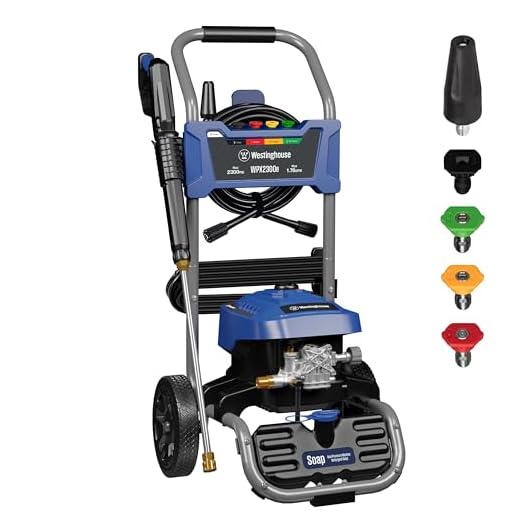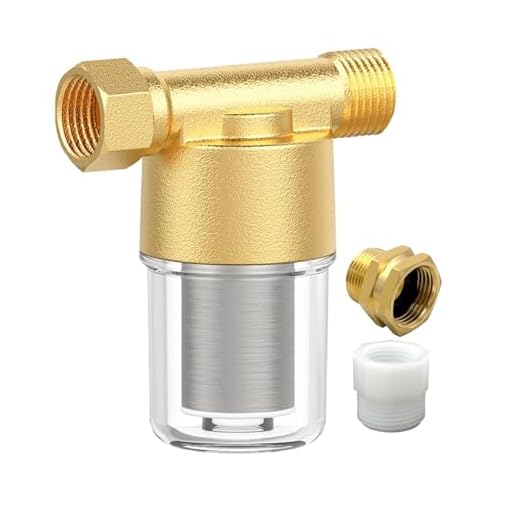Blog
How To Contain Pressure Washer Runoff

Pressure washers are powerful tools that can make quick work of cleaning outdoor surfaces. However, one often overlooked issue with pressure washers is the runoff that is generated during the cleaning process. This runoff can contain harmful chemicals and pollutants that can harm the environment if not properly contained. In this article, we will explore the importance of containing pressure washer runoff and provide some tips on how to do so effectively.
Why is it important to contain pressure washer runoff?
When pressure washing, the water and cleaning solutions used can pick up dirt, grime, oil, and other pollutants from the surface being cleaned. If this runoff is not properly contained, it can flow into storm drains, rivers, or other bodies of water, causing harm to aquatic life and contaminating drinking water sources. Additionally, the chemicals used in some cleaning solutions can be harmful to plants and wildlife. Therefore, it is important to take steps to contain and dispose of pressure washer runoff in an environmentally responsible manner.
How can you contain pressure washer runoff?
There are several methods you can use to contain pressure washer runoff. One of the simplest ways is to place a containment mat or tarp under the area being cleaned. This will capture the runoff and prevent it from flowing into nearby storm drains or water sources. Another option is to use a vacuum system that is specifically designed to collect and filter pressure washer runoff. These systems can be attached directly to the pressure washer and will collect the runoff as it is produced.
In conclusion
Containment of pressure washer runoff is essential to protect the environment and prevent water pollution. By taking the necessary steps to contain and dispose of this runoff properly, you can ensure that your pressure washing activities are both effective and environmentally friendly. Remember to always follow local regulations and guidelines when it comes to handling and disposing of chemical waste.
How To Prevent Pressure Washer Runoff
Preventing pressure washer runoff is important to protect the environment and comply with local regulations. Here are some steps you can take to prevent pressure washer runoff:
- Choose a suitable location: When using a pressure washer, make sure to choose a location that has proper drainage or is away from storm drains, water bodies, or sensitive areas.
- Contain the water: Use a containment system such as a plastic barrier or a tarp to collect the water and prevent it from spreading.
- Direct the water to a proper disposal area: Once the water is contained, you can redirect it to a suitable area for disposal, such as a sanitary sewer or a designated drainage point.
- Use environmentally-friendly cleaning solutions: Opt for biodegradable and non-toxic cleaning solutions to minimize the environmental impact.
- Use low-pressure settings: Adjust the pressure washer to a lower setting whenever possible, as this will reduce the amount of water used and minimize runoff.
- Use a pressure washer with a built-in water reclamation system: Consider using a pressure washer that has a built-in water reclamation system, which can help recycle the water and reduce runoff.
- Practice proper maintenance: Regularly clean and inspect your pressure washer to ensure it is in good working condition and minimize the risk of leaks or spills.
- Stay informed about local regulations: Stay updated with the local regulations regarding pressure washer use and disposal to ensure compliance and avoid penalties.
By following these preventative measures, you can effectively minimize pressure washer runoff and protect the environment.
Best Practices for Pressure Washing
Pressure washing is a powerful and effective way to clean various surfaces, but it can also cause damage if not done properly. To ensure the best results and prevent any mishaps, it’s important to follow these best practices:
1. Choose the Right Pressure Washer
Not all pressure washers are created equal. Different surfaces require different levels of pressure, so it’s essential to choose a pressure washer with the appropriate power. Too much pressure can damage delicate surfaces, while too little might not be effective enough.
2. Use the Right Nozzle
The nozzle you use plays a crucial role in the effectiveness of the pressure washer. Different nozzles provide different spray patterns and pressures. Use a wider spray pattern for delicate surfaces and a narrower one for tougher stains. It’s also important to keep the nozzle at an appropriate distance from the surface to avoid damage.
3. Test on a Hidden Area
Before pressure washing an entire surface, it’s a good idea to test on a small, inconspicuous area. This allows you to see how the surface reacts to the pressure and adjust accordingly.
4. Use the Right Cleaning Solutions
Some surfaces may require a cleaning solution to effectively remove dirt and grime. Use a mild detergent or a specialized pressure washer cleaner specifically designed for the surface you are cleaning. Avoid using harsh chemicals that can damage the surface or harm the environment.
5. Work in Sections
When pressure washing larger surfaces, it’s best to work in sections. This ensures that all areas receive equal attention and avoids streaks or uneven cleaning. Start from the top and work your way down, rinsing each section thoroughly before moving on to the next.
6. Protect Nearby Objects
Pressure washing can cause debris and water to scatter, potentially damaging nearby objects or plants. Before you start, it’s important to cover or relocate any objects that could be affected. It’s also a good idea to wet nearby plants before and after pressure washing to minimize damage.
7. Dress Appropriately
Pressure washing can be a messy job, so it’s important to dress appropriately. Wear goggles to protect your eyes from flying debris, and gloves to shield your hands from the powerful spray. It’s also a good idea to wear shoes with a good grip to avoid slips and falls.
By following these best practices, you can ensure a safe and effective pressure washing experience and achieve the best results for your cleaning needs.
Proper Containment and Disposal Methods
Proper containment and disposal methods are essential when dealing with pressure washer runoff to prevent pollution and minimize environmental impact. Follow these guidelines to ensure proper containment and disposal of pressure washer wastewater:
- Containment: Use barriers, such as berms or containment pads, to prevent runoff from entering storm drains or natural bodies of water. This will help to contain the wastewater and prevent it from contaminating the environment.
- Recovery: Implement a wastewater recovery system to capture the runoff for proper disposal. This can include using an absorbent material, such as a vacuum or absorbent booms, to collect the wastewater for later disposal or treatment.
- Separation: Separate any solid contaminants from the liquid wastewater to simplify disposal. This can be done by allowing the solids to settle at the bottom and transferring the liquid portion for further treatment.
- Treatment: If possible, treat the pressure washer wastewater to remove any harmful contaminants before disposal. This can be done through filtration, sedimentation, or chemical treatment processes.
- Disposal: Dispose of the pressure washer wastewater in accordance with local regulations. It is important to follow any guidelines or permits set by your local municipality or environmental agencies to ensure proper disposal.
- Recycling: Whenever possible, consider recycling the pressure washer wastewater. Some facilities may be able to recycle the water for reuse in other applications, reducing the overall environmental impact.
By following these proper containment and disposal methods, you can effectively manage pressure washer runoff and minimize its impact on the environment. Remember to always prioritize environmental protection when handling and disposing of pressure washer wastewater.
Environmental Impact and Legal Considerations
The use of pressure washers can have a significant environmental impact if proper precautions are not taken. The runoff generated by pressure washing can carry contaminants such as oil, grease, pesticides, and other chemicals into storm drains and ultimately into natural waterways. This can have detrimental effects on aquatic life and ecosystems.
It is important to be aware of the legal considerations surrounding pressure washing and runoff. In many areas, it is illegal to discharge pressure washer wastewater into storm drains or directly onto the ground. Violation of these regulations can result in fines and legal consequences.
To mitigate the environmental impact and ensure compliance with regulations, it is recommended to contain and properly dispose of pressure washer runoff. One way to do this is by using containment devices such as berms, drain filters, or vacuum systems. These devices capture the wastewater and prevent it from entering storm drains or surrounding areas.
In addition to containing runoff, it is important to dispose of the wastewater properly. Depending on the contaminants present, it may be necessary to treat the wastewater before it can be legally discharged. Contacting local environmental agencies or wastewater treatment facilities can provide guidance on proper disposal methods.
Furthermore, there are environmentally friendly alternatives to traditional pressure washing methods, such as using biodegradable detergents or steam cleaners. These methods can reduce the amount of harmful chemicals entering the environment and minimize the need for containment and disposal of wastewater.
By understanding and adhering to the environmental and legal considerations associated with pressure washer runoff, individuals and businesses can minimize their impact on the environment and ensure compliance with regulations.
Question-answer
What is pressure washer runoff and why is it a problem?
Pressure washer runoff refers to the water and chemicals that are discharged from the pressure washer during use. It can be a problem because this runoff can contain dirt, contaminants, and chemicals, which can pollute water sources and harm the environment.
How can I contain pressure washer runoff?
There are a few ways to contain pressure washer runoff. One option is to use a containment mat or barrier to collect the runoff, which can then be properly disposed of. Another option is to direct the runoff to a designated area such as a sanitary drain or a permeable surface that can absorb the water.
Are there any regulations or laws regarding pressure washer runoff?
Yes, there are regulations and laws regarding pressure washer runoff. These may vary depending on your location, but many areas have restrictions on where the runoff can be discharged and what chemicals are allowed to be used. It’s important to check with your local environmental agency or municipality to ensure compliance with these regulations.
What are the environmental impacts of pressure washer runoff?
Pressure washer runoff can have negative environmental impacts. The chemicals and contaminants in the runoff can pollute water sources, leading to harm for aquatic life and ecosystems. It can also contribute to water pollution and affect the quality of drinking water sources. Additionally, excessive water use from pressure washing can strain local water resources.
Are there any eco-friendly alternatives to pressure washing?
Yes, there are eco-friendly alternatives to pressure washing. One option is to use a broom or brush with water and mild soap to clean surfaces. Another option is to use steam cleaning, which uses low-pressure steam to remove dirt and grime. These methods can be more environmentally friendly and still effectively clean surfaces.
What is pressure washer runoff?
Pressure washer runoff refers to the water and debris that is produced when using a pressure washer to clean surfaces. This runoff can contain dirt, chemicals, and other pollutants, which can be harmful to the environment if not properly contained and disposed of.
Recent Posts
-
How To Connect Soap To Honda Pressure Washer
June 28, 2024 -
A To Z Pressure Washing Scam
June 27, 2024 -
How To Pressure Wash Your Home With A Garden Hose
June 27, 2024 -
Where Can I Buy Honda Pressure Washer Parts
June 25, 2024











